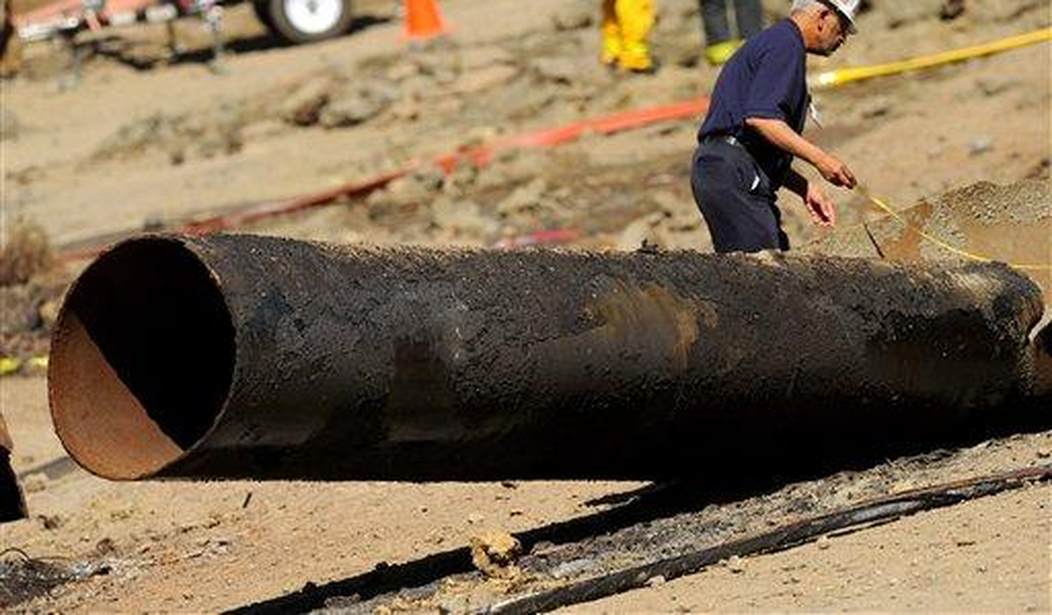As a historic bomb cyclone ravages much of the country, this extreme weather event has killed at least 20 people and put travel at a standstill.
And it doesn’t help those in distress –or without power – feel secure when many in the media fear monger about climate change correlating with winter weather.
More reassuringly, however, conditions aren’t worse. Why? Continued reliance on fossil fuels keeps us warm and provides energy security.
Much to the Biden administration’s dismay, net zero policies will make extreme winter events difficult to weather.
The North American Reliability Corporation (NERC) issued its 2022-2023 Winter Reliability Assessment, warning, “The capacity of the natural gas transportation infrastructure could be constrained when cold temperatures cause peak demand for both electricity generation and consumer space-heating needs. Potential constraints on the fuel delivery systems and limited inventory of liquid fuels may exacerbate the risks for fuel-based generator outages and output reductions that result in energy emergencies during extreme weather.”
Recommended
Per the U.S. Energy Information Agency (EIA)’s, the daily electricity generation mix map shows consumers are using natural gas (39%), coal (24%), and nuclear (16%). Where do solar and wind fall? At a paltry two percent and seven percent, respectively.
In 2020, fossil fuels accounted for 80% of U.S. energy consumption and 80% of energy production.
In 2018, the Department of Energy (DOE) explained continued reliance on oil, coal, and gas keeps Americans thriving and warm during winter months: “This increased demand requires a steady and reliable energy supply, and fossil fuels play an important role in meeting that demand…This need for more heating and electricity can put a strain on the electric grid—especially during extreme weather events. But, fossil fuels provide a stable source of power generation to keep the grid up and running.”
With Winter Storm Elliott plaguing at least 60% of the U.S., our electric grid is vulnerable if we move away from fossil fuels.
The White House desires an “economy-wide” transition to faulty renewables like solar and wind by 2050.
As of this writing, 13 states comprising the Mid-Atlantic and Northeast–including Virginia–are currently at risk of rolling blackouts this past holiday week. Ironically, many of the states affected belong to the flawed carbon market and 11-member Regional Greenhouse Gas Initiative (RGGI) that has encouraged going net-zero.
But don’t be surprised to see Biden and company double down on net-zero.
Coupled with this is a push to phase out gas-powered cars by arbitrary deadlines to push Americans to an entirely electric vehicle fleet.
Imagine driving in atrocious winter weather in an electric vehicle–unreliable vehicles forced on consumers and mandated by the government (federal or state).
During a January 2022 winter storm that paralyzed drivers on I-95 in Virginia, Washington Post columnist Charles Lane reminded readers that an entirely EV fleet would have made that situation more dire.
Lane observed, “If everyone had been driving electric vehicles, this mess could well have been worse.”
“All else being equal, though, cars and trucks with internal combustion engines (ICE) would have the advantage in coping with a sudden challenge such as the I-95 fiasco. It is much easier to rehabilitate a disabled ICE vehicle. Rescuers can deliver gallons of gas in convenient jugs; gas stations are still far more numerous than EV charging stations; and ICE car batteries can be jump-started in minutes. Absent some breakthrough in mobile charging technology, out-of-juice EVs in out-of-the-way places will need a tow. If Monday’s nightmare had been an all-electric affair, they might have littered the highway for miles,” he added.
He’s correct.
Naturally, climate alarmists are blaming arctic warming for these cold blasts.
A Washington Post headline reads, “Scientists say Arctic warming could be to blame for blasts of extreme cold.” The tagline added, “Research suggests that climate change is altering the jet stream, pushing frigid air down to southern climes more frequently. But the scientific jury is still out.”
Ryan Maue, meteorologist and former National Oceanic and Atmospheric Administration (NOAA) chief scientist under the Trump administration, tweeted, “Climate change doesn't make nasty winter storms or cold more frequent.”
Michael Shellenberger, environmentalist and author of Apocalypse Never, observed in his Substack newsletter, “In other words, the underlying reason for the electricity emergency is the lack of natural gas, nuclear, and coal, which can provide reliable electricity in all weather conditions, unlike solar panels and wind turbines. It’s true that solar panels and wind turbines can still operate in cold weather. There is often still sunlight and wind when it is cold. Snow can be brushed off of solar panels, and it is possible to de-ice frozen wind turbines. But the sun often doesn’t shine during the hours people most need electricity and wind is not reliable enough to provide electricity during the winter.”
What’s the lesson here? Let's not bite the hand that feeds us.
There’s no practical reason to trade reliable, cheap, fossil fuels and nuclear energy for more costly and unreliable energy sources.

























